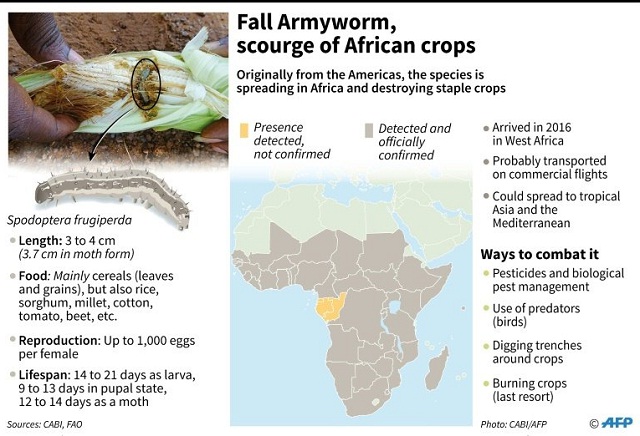
In addition, the use of pesticides in general is resisted by Kenyan farmers who tend not to use them for maize and some of whom fear the environmental impact.
One possibility is genetically-modified maize, designed to produce a pesticide which kills destructive insects. But scientists have found evidence in the US that the armyworm is becoming resistant to the main GM corn strain.
In addition, GM maize remains controversial: for now, South Africa is the only African country to allow the marketing of genetically-altered seeds.
The next few months will show whether the awareness campaigns — including, for example, advice on alternating crops, mixed fields and sowing earlier in the season — have begun to roll back the onslaught.
But for the experts, one thing is certain: the fall armyworm has made Africa its home.
The only hope remains mitigating the carnage.
With no quick fix in sight, researchers are resorting to calls for better farming practices to increase yields, hoping to offset the losses caused by the armyworm’s soundless rampage.
 The Independent Uganda: You get the Truth we Pay the Price
The Independent Uganda: You get the Truth we Pay the Price





